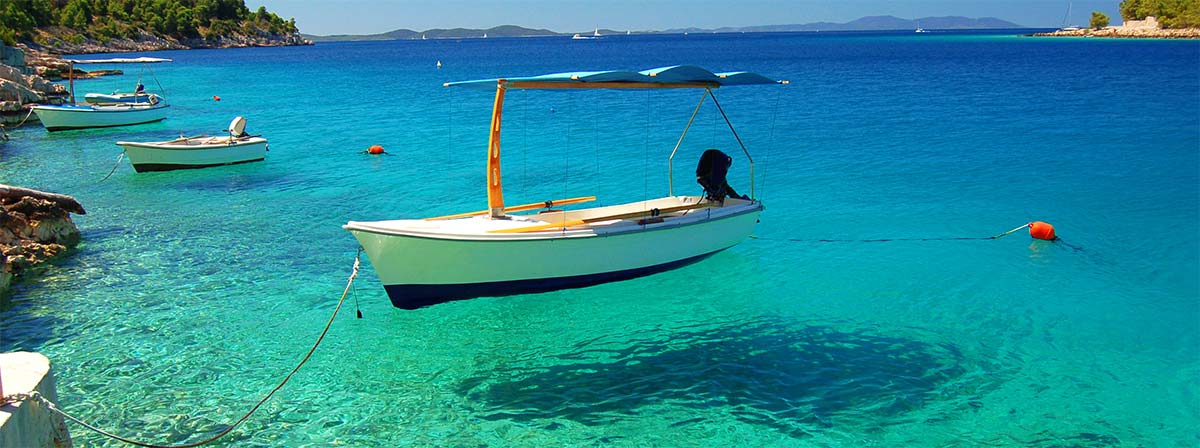
Have you been looking for a pleasant place to live or retire? Maybe you received a business or work opportunity that you just can’t turn down, or perhaps you are looking for a fresh perspective with the potential to give your life a new direction and impulse? In truth, the reason doesn’t really matter: whether your interest is inspired by romance, work opportunities, or a desire for change, exploring new horizons is always exciting.
We are glad you have chosen us to help you become acquainted with the advantages and disadvantages of living in Croatia. The decision to move to another country is never a simple one, and often implies disruptive change and a hard break with old ways and habits, regardless of the chosen destination. With this in mind, we will do our best to present you with all the advantages of a life in Croatia, as well as warn you about possible complications and unforeseen circumstances that you could potentially be exposed to after moving to Croatia, so that you can make your decision in the most objective and informed way possible.
Croatia isn’t the richest or the most developed country in the world; its people and towns are pleasant and friendly but often lack the bustle and ambition of more economically developed western nations. But that’s not surprising: similar to other eastern European countries, Croatia is still in transition. Even after becoming a member of the EU, it still has some way to go before it is fully integrated in western modernity.
So, with all that said, you may ask yourself: why are so many people from around the world choosing to move to Croatia and start a life there? Well, just a brief glance at the spectacular vistas of this unusually shaped little country situated in the south east part of the Mediterranean can give you an instant answer. Words are just not enough to convey the amazement of newcomers who get to know the colourful cities along the Adriatic coast, overflowing with history and providing visitors a unique blend of past and present (with Dubrovnik being the best known but by no means the only example).
Beholding a view of countless islands decorating the long coastline of the crystal blue Adriatic sea is an undoubtedly moving experience. Even the fact that the tourism sector is not as developed as the more rationally organized and efficiently economically exploited other European nations on the Mediterranean could be a blessing in disguise – especially if you are gifted with the ability to appreciate the majesty of nature, still mostly untouched and unspoiled by extensive development.
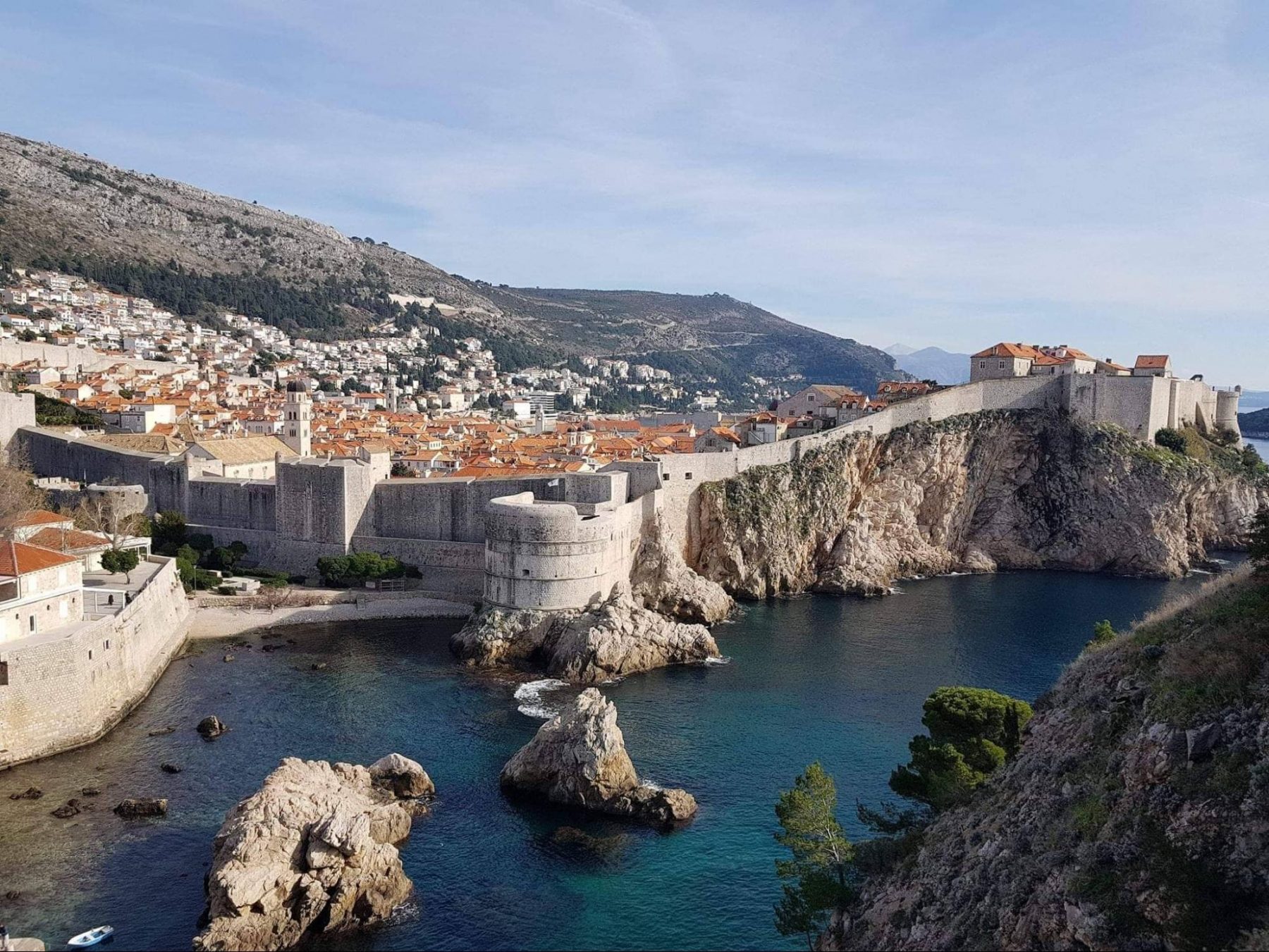
Dubrovnik, a town on the southern end of the Croatian coast. Its impressive walls date to the renaissance period, and the city was used as a set for the globally popular “Game of Thrones” show.
Several sites considered by UNESCO as an important part of world history and natural heritage are situated in Croatia. We already mentioned one of them, the town of Dubrovnik itself, but others are no less impressive. Plitvice National Park, Diocletian Palace in Split, St. James Cathedral in Šibenik, and the Euphrasian Basilica in Poreč are just some of the places you should definitely visit, even if you don’t plan to live nearby. Living in Croatia, you are never too far from these sites anyway; this is, after all, a natural benefit of living in a small country of only approximately 56,500 km2.

Away from the coast you will find Plitvice Lakes National Park. The picture of this park we are presenting here can only capture a small part of the pristine, untouched beauty of this natural wonder.
The beauty of the Adriatic coast is certainly a major defining factor of Croatia. But so is, in equal part, its diversity, even if much less emphasized and talked about! Even if the charms of inland Croatia lack the immediate flair and attractiveness of the coast, cities rich with historical heritage like Zagreb and Varaždin prove the skeptics wrong. From the temperate northern region(with many medieval castle ruins dotting the north-eastern Zagorje area), to the beauty of rural Slavonia and its towns; from the sights of Dinaric mountains (Velebit) to the clean air of Gorski Kotar, there is a place to suit every taste. So many different flavours and so much diversity is concentrated in such a small area! Such is the land you’ll get to experience when you relocate to Croatia.

A historic part (old town) of the city of Zagreb, with the prominent Cathedral of Zagreb towering in the skyline.
It all seems nice and interesting, but life is not a vacation, there are everyday concerns that you need to think about. After all, this is not a tourist guidebook; if you are reading this, chances are you are interested in moving to Croatia for a long time, if not permanently. Thus, besides talking about the natural beauty and undeniable diversity of the landscape, we also have to make sure you are aware of the local situation. That way, after your removal service is completed and you unpack your belongings in your new home, nothing will take you by surprise.
We already mentioned that Croatia’s transition into the western world isn’t yet fully complete. While there is constant growth and economic dynamism, especially in recent years, this growth, unfortunately, is not always followed by the wage growth. For a person used to living a middle-class life in a developed western country, Croatian wages will seem quite poor (though still higher than in many other eastern countries, including the Balkans with the exception of Slovenia). If you plan to work in Croatia (and you will have to prove you have a reliable source of income if you want to secure a permanent residency), you may have to get accustomed to more modest means, usually without luxury. The situation is better if you are highly qualified (it will be easier to get a residency permit if you are), but even then, it is usually best to keep your expectations in check and not expect western European wage levels. Of course, freelance work is always an option, too. On the other hand, if you have a source of income from a western country (like a wage or pension), you can expect to live really well in Croatia. In a country of such natural beauty, if you aren’t worried about money, your life can become virtually an endless vacation.
Of course, with economic underdevelopment comes a host of other problems and structural deficiencies, like nepotism and relatively high corruption. While this may not be totally unexpected in a society still characterized by low wages and scarcity of economic opportunities on one hand, and strong traditional and family bonds between people on another, it is certainly an obstacle for a person expecting utmost bureaucratic efficiency and quick problem and dispute resolution. Wait lines are often long, whether in healthcare or in dealing with state bureaucracy. While in some cases the bureaucracy can be very quick and efficient (especially when it comes to taxation, or even fighting small crime), but trying to get any kind of state-issued document often involves a great deal of patience.
The positive side of living in Croatia, especially for someone coming from a country like the US, is the fact that healthcare is still mostly free (with even dental services being cheaper than in more developed countries) even for the unemployed. Education is mostly free as well, especially the lower levels like primary and secondary school. Primary school is mandatory and free. Kindergartens, while not free or mandatory, are often subsidized by the local government. Social protection from unemployment isn’t very generous, though, so it’s best to avoid relying on it.
Enterpreneurs have a reason for guarded optimism in Croatia: while wage tax could be seen as somewhat of a burden, this circumstance is tempered by the fact that wage levels are much lower than in more developed economies. Constant strides are taken to reduce the tax on capital income: it now stands at 18% and can go even lower in the case of reinvested profit. The government is often not shy to admit the existing deficiencies: there are constant efforts to streamline the laws and make the administration more efficient and responsive. The process is slow, but Croatia is constantly progressing, with positive outlook for the future.
While the education system is mostly free, it often lacks the performance and job preparedness benchmarks of more prominent schools and universities around the world. The healthcare system is also free, but patients are often required to contribute towards some more expensive procedures; this also depends on the level of coverage (obligatory or additional).
Taxation is significant, but within EU averages, except maybe VAT tax, which is currently pretty high (standing at 25%). The tax burden is mostly felt by workers (with tax reaching 36% for those on the highest wages), together with high deductions for healthcare and retirement funds (which can bite because the wages are generally lower: what is considered a high wage in Croatia can be taxed unusually highly because of a much lower threshold than the progressive taxation systems in richer countries).
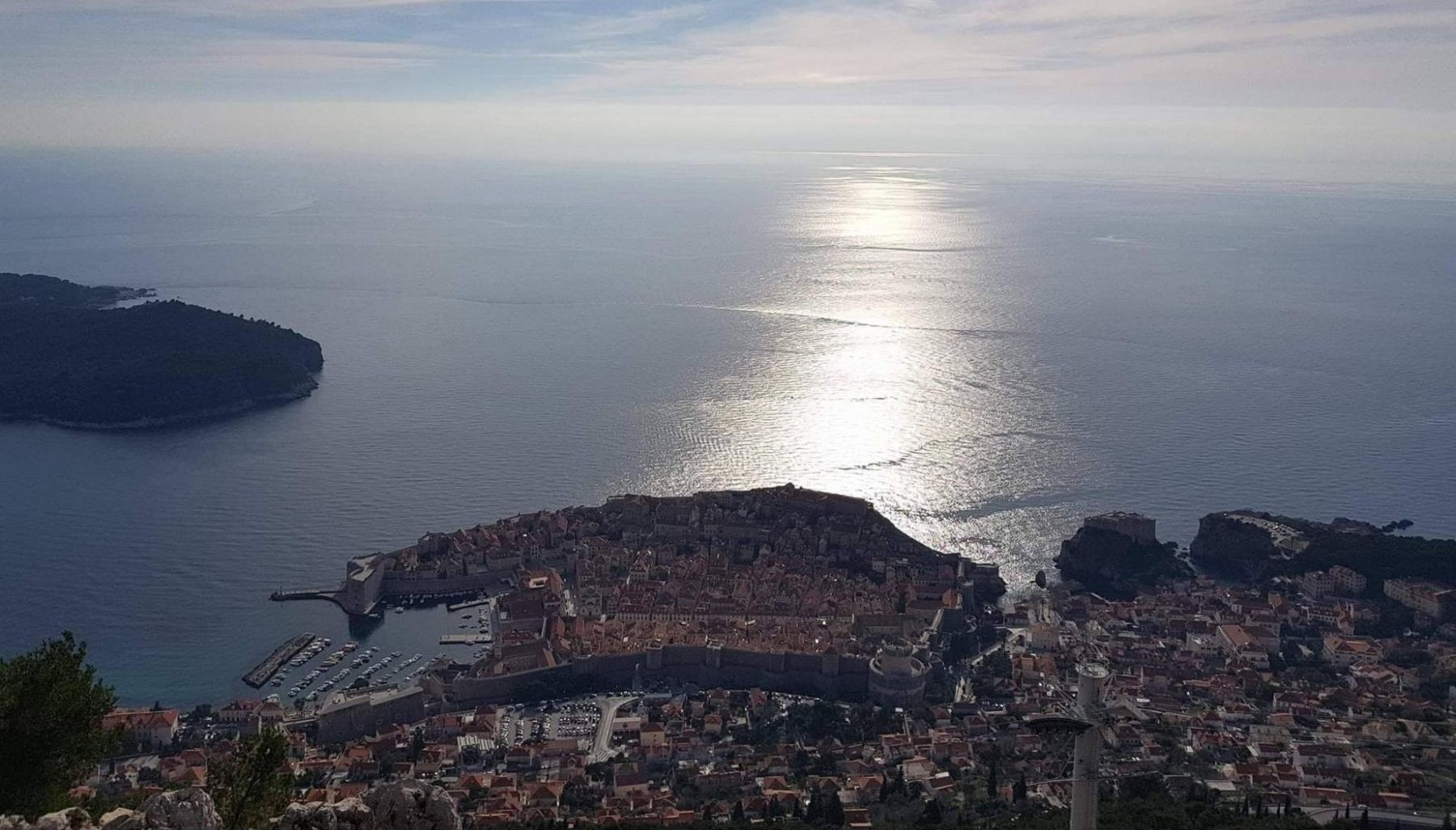
To sum it up: if you come to Croatia, come with reasonable expectations. Its economy is still underdeveloped, but the workforce is educated and there is a path forward; with relatively low wages, there is still so much untapped potential. Apartment rental prices are significantly lower than in western countries, which definitely helps. With an average Croatian wage, you can expect a comfortable, modest lifestyle, if you can learn to live within your means. On the other hand, if you have other sources of income (from western countries) or are an entrepreneur (and have the persistence and patience to deal with often unresponsive state administration), Croatia can be a perfect place to live, or even become an economic opportunity.
Here is a link to the most widely known Croatian classified ads website: https://www.njuskaklo.hr. There you can find apartment rental opportunities, as well as purchase anything else people are willing to sell.
If you plan a short stay (defined as staying in Croatia for no longer than 90 days in a 180 day period), then you don’t need a visa if you come from a country which is a member of European Economic Area, or if your country is on a list of exceptions. The citizens of all other countries will need to obtain a visa to stay in Croatia, even short term. EU nationals don’t need visa or work permits (as the EU laws of free movement of labour and capital apply, with some exceptions), but they also need a residency permit if they plan to stay longer than 90 days. A temporary residency permit can be extended, and a permanent permit can be requested after five years.
As mentioned, if you want to stay for longer than 90 days, you need to get a temporary residence permit. The procedure has its requirements (a birth certificate, proof of purpose of your stay, proof of the means to support yourself, etc.), and success is not guaranteed. It is usually only granted if there is a valid reason (for example, research or scientific work, education, labour, humanitarian grounds, etc.). Having a family member in Croatia or being married to a Croatian is also a way to ensure you can get a permanent residency permit.
If you want more comprehensive information about the registration process after moving to Croatia, you are encouraged to visit the relevant section on the website of the Croatian Ministry of Foreign and European Affairs: http://www.mvep.hr/en/consular-information/stay-of-aliens/granting-stay-in-croatia-/
Every relocation implies a certain break with past habits and ways of living. On the other hand, such a decision opens up new opportunities and definitely widens a person’s outlook on life. Whether you will feel a big change also depends on the culture you are coming from. In Croatia, there is still a strong influence of Catholicism and the catholic church, so if you come from a traditionally catholic country or even a Christian country in general, you may barely notice a change.
Gender roles are also somewhat more bound to tradition than in liberal western countries, though the winds of change are evident. Men and women still usually fulfill their traditional roles: males are still expected to pay for the drinks and ladies are still defining their life expectations (together with aesthetics and dressing style) within the boundaries of traditional femininity. That said, more liberal values are already blurring the lines between traditional gender roles in Croatia as well.
When planning a move to Croatia, it is a good idea to take courses in the Croatian language, either before or immediately after arrival. Croatian is a pretty difficult language with some quite complex rules, so preparation is advisable if you really want to avoid sounding like a stranger and fit in with the local culture and people as much as possible
Really, many things could surprise strangers who make their first contact with Croatian culture, but these factors are difficult to enumerate and depend on the country of origin. Some say that Croatian people are still quite bound by traditional honour and loyalty There may be truth to it, because crime rates are still quite low (especially compared to the US). In Croatia, smoking in cafes is still allowed, for example, though there are pressures to ban the practice there as well. It is also said that Croatian people are usually more relaxed in comparison to their western counterparts: it is not uncommon for a coffee break to turn into a several hour conversation. Socializing is often done through family gatherings as well, where leaving too early is usually seen as impolite.
There is one thing that you should be really careful about: in Croatia, there is no “turn on red” rule. It is not permitted for drivers to take a turn to the right on a red light (as may be the case in some US and EU states). In general, be careful, inform yourself of the local laws and regulations, and try to avoid breaking the law, as fines can be quite high.
As always, we did our best to provide you with basic information about the conditions, attractions and potential disadvantages of living in Croatia. Of course, we are aware that an article this short cannot hope to cover all areas adequately. For this reason, we recommend you always get your information from several different and varied sources. To accomplish this and to complete this guide, we will provide you with several additional links that cover many of the mentioned areas in more detail.
For even more information about moving to Croatia, check the other articles on our blog. For details regarding your removal service, simply request a quote.
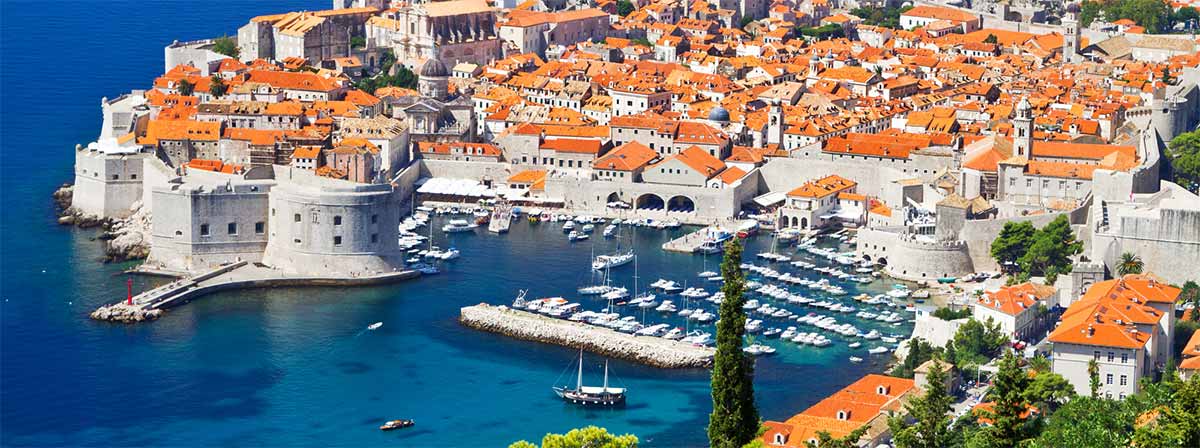 Living in Croatia
Living in CroatiaSettling in Dubrovnik, Zagreb or any other Croatian city is much less troublesome since the…
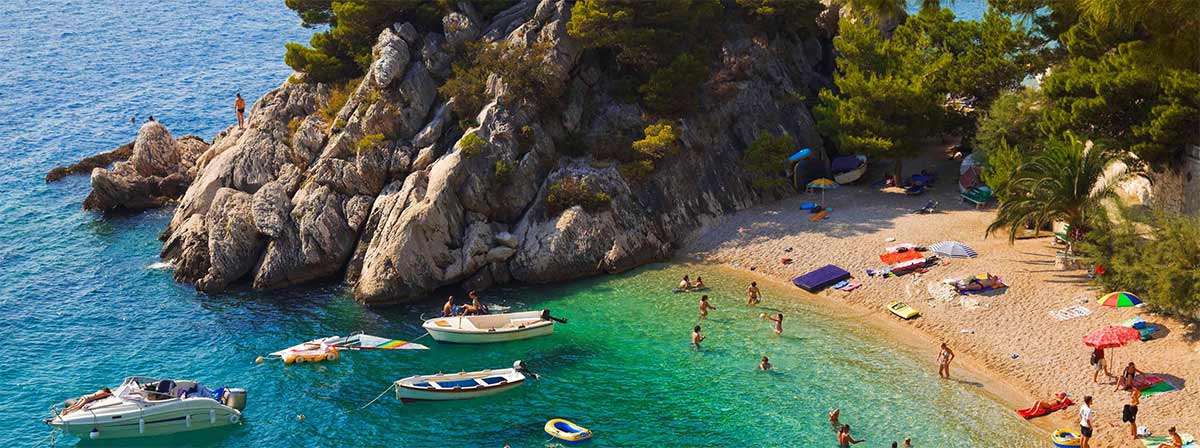 Social Life in Croatia
Social Life in CroatiaLanguage In Croatia they speak Croatian (Hrvatski). Although learning this language can be…